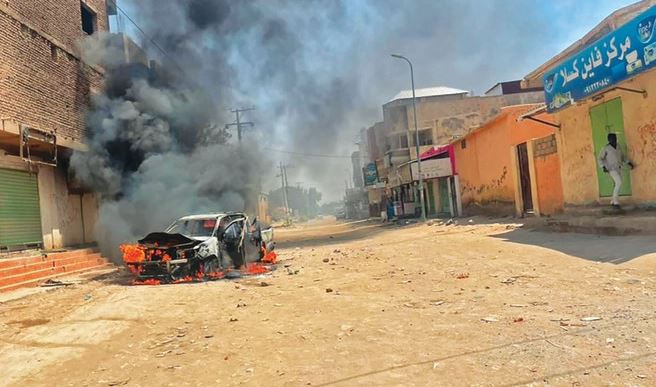KHARTOUM: Thousands of Sudan’s Hausa people protested in multiple cities on Tuesday, demanding justice for dozens of comrades killed in a deadly land dispute with a rival ethnic group in the country’s south.
The protests sparked by anger at the recent violence is the latest unrest to hit the northeast African nation, already reeling from months of mass demonstrations demanding the restoration of a transition to civilian rule following a military coup last year.
At least 79 people have been killed and 199 wounded since heavy fighting broke out last week between the Berti and Hausa groups in Blue Nile state, the Health Ministry says.
While the army has been deployed in Blue Nile and the fighting there quashed, protests have since erupted in other states, with marches on the streets of the capital Khartoum, as well as in the key eastern cities of Gedaref, Kassala and Port Sudan.
On Tuesday, Hausa protesters in Khartoum held up signs demanding “justice for the Blue Nile martyrs” and “no to the murder of Hausas.”
Fighting reportedly broke out on July 11 after Bertis rejected a Hausa request to create a “civil authority to supervise access to land,” a prominent Hausa member said.
But a senior Berti leader said the group was responding to a “violation” of their land by the Hausas.
In Sudan, deadly clashes regularly erupt over land, livestock, access to water and grazing, especially in areas awash with weapons still struggling from the impact of decades of civil war.
Experts, however, say an October coup led by army chief Abdel Fattah Al-Burhan has stroked a resurgence in ethnic violence.
In Gedaref, some 4,000 people marched chanting “Hausa are citizens too” and “revenge for the martyrs of the Blue Nile.”
Some 500 people also “blocked the highway” in the town of Al-Showak in Gedaref state, eyewitness Saleh Abbas told AFP.
In El-Obeid, capital of North Kordofan state, some 3,000 marched on the streets chanting “the Hausa will win,” while in Port Sudan, on the Red Sea, thousands of Hausa gathered outside local government offices calling for “justice for the martyrs.”
In Kassala, authorities have banned public gatherings after thousands of Hausa demonstrators “set government buildings and shops on fire,” said Hussein Saleh, another witness.
Sudan, one of the world’s poorest countries and mired in an economic crisis that has deepened since Burhan seized power last year, has seen only rare interludes of civilian rule since independence.
Blue Nile, where the fighting erupted last week, was a key battleground of rebels trying to topple former president Omar Bashir during Sudan’s 1983-2005 civil war, with fighting resuming again in 2011.
After enormous protests against his rule, the army ousted Bashir in 2019.
The following year, a civilian-military power-sharing government reached a peace deal with key rebel groups, including from Blue Nile as well as the war-ravaged western Darfur region. Darfur has also seen a renewed spike in deadly violence in recent months.
Pro-democracy activists have accused Sudan’s military and ex-rebel leaders who signed that peace deal of exacerbating ethnic tensions for political gain, claims they reject.

